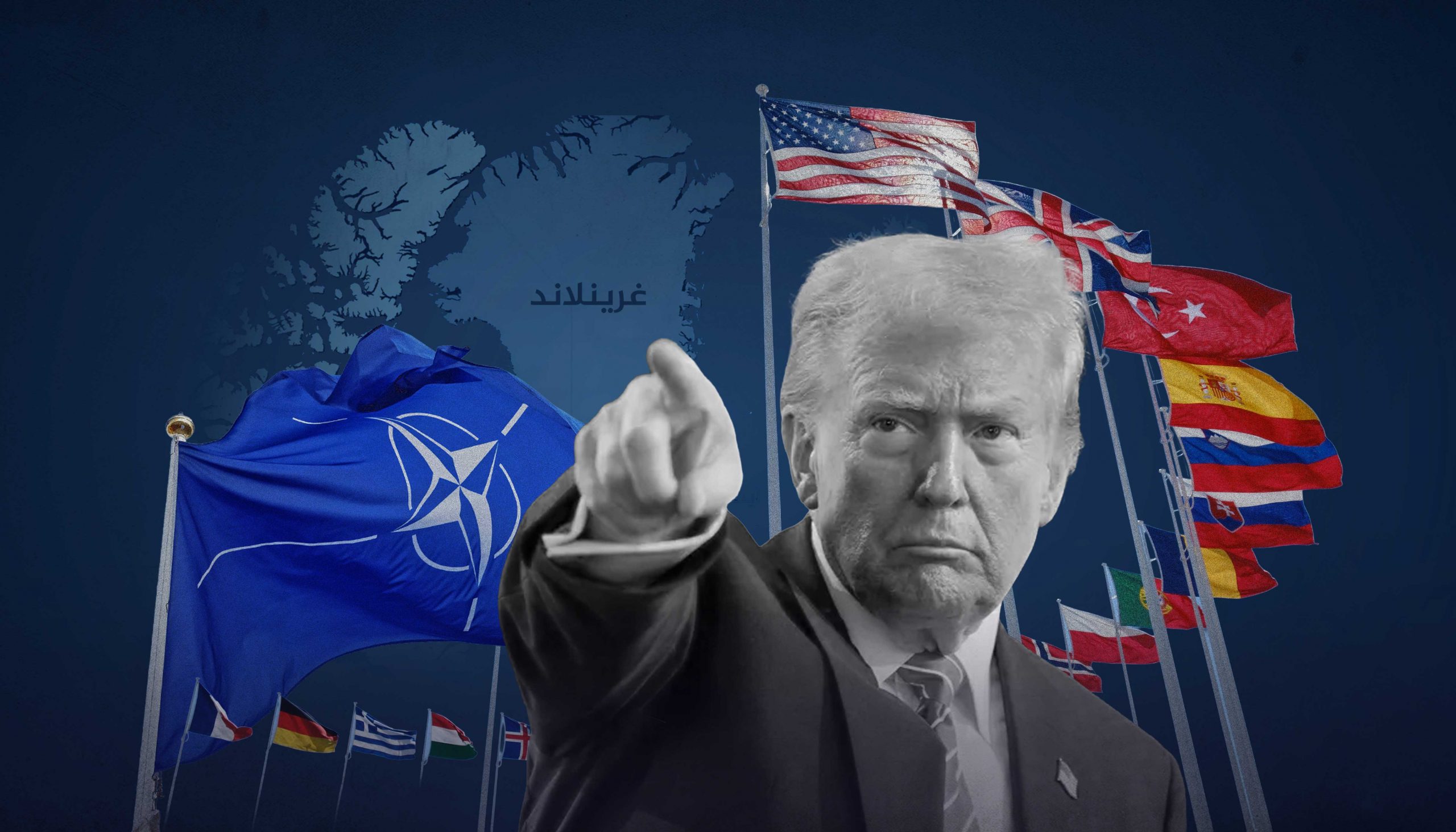Abstract
Djibouti enjoys a geostrategic significance that transcends its small size and population. This Horn of Africa country lies astride critical sea lanes of communication and just offshore the chokepoint of the Bab el-Mandeb Strait. Djibouti’s geostrategic significance is further enhanced on account of the numerous military bases it hosts, to include French, Chinese and American installations. The country is entering a turbulent period, however, as President Ismaïl Omar Guelleh’s previously unquestioned authority is increasingly challenged after more than two decades in power. Internal power struggles within the ethnic Somali-led regime have been compounded by an uptick in tensions between the two main ethnic groups, the Somali and the Afar, which, in turn, have been exacerbated due to the spillover effect of the Ethiopian civil war. The resulting violence between Somali and Afar and the internecine struggles for power playing out in the capital threaten to upend the stability and relative prosperity of this city state that has been prized by foreign militaries. This article analyzes both the internal and external dynamics that affect Djibouti’s political stability and, relatedly, highlights the implications they may have on regional stability and international security.
Djibouti’s geostrategic relevance
The Red Sea constitutes one of the leading maritime routes of global trade bridging the West and the East. It has been described as the world’s Interstate-95 (I-95) – a reference to America’s busy Boston-Miami highway corridor – due to its volume of shipping transit annually. More than 20,000 ships are reported to transit through Bab al-Mandeb each year, accounting for about 30 per cent of the world’s maritime trade, with a turnover of more than 700 billion US dollars. Barely 10 percent of the size of the United Kingdom, the small African city-state of Djibouti sits at the southern end of this corridor astride the Bab el-Mandeb Strait which gives it a geostrategic significance that belies its small size.[1] The Strait, which is only 18 miles wide, connects the Red Sea to the Gulf of Aden and thence to the Indian Ocean.
Djibouti’s geostrategic weight is enhanced by the military presence of extra-regional states on its soil. American, Chinese, Japanese, French and other soldiers are based at various locations scattered throughout the small state. Others have initiated talks with Djibouti or with some of its neighbors (Somaliland, Eritrea, Sudan) about hosting their military facilities on their territory.[2] The involvement of so many extra-regional states – and two great powers – in such close proximity has resulted in turning Djibouti and the Red Sea into something of a proving ground for global competitors.[3] In turn, piracy, terrorism, and human smuggling on both sides of the Red Sea have further elevated Djibouti’s relevance.[4] The number of weak or failing states in the region coupled with a high rate of internal conflicts has affected human and political security negatively.[5]
Djibouti, given its relative political stability, has become the headquarters for multiple monitoring and stabilization operations. The increase in anti-piracy patrolling activities in the Red Sea after the hijacking of multiple vessels by Somali pirates, led states such as China and Japan to establish a somewhat permanent military presence in Djibouti. Japan’s military footprint has remained small. In contrast, China, now has both terrestrial and maritime military bases in Djibouti and Chinese companies have built and run much of the country’s port infrastructure. China and Japan’s decisions to establish military outposts in Djibouti marked a change in the People’s Republic’s foreign policy strategy.[6] Further, China’s move had implications for global politics by heightening the importance of the Red Sea and Djibouti. In other words, the Chinese military base, opened in 2017, has increased the geostrategic relevance of the area, transforming the African country into an arena of global competition.[7]
Of note, the military footprints in Djibouti of adversarial states such as the US and China have become instrumental in their ability to monitor each other’s activities and engage in limited brinksmanship. One of the Chinese military bases, for example, is located just a few kilometers away from Camp Lemonnier, the sprawling American military base which happens to also be the US’s only long-term military presence in Africa.
Djibouti’s leaders have greatly benefited from their country’s strategic location and the financial resources accrued by charging rent for each military facility. These have, for a time, seemingly generated a win-win dynamic for a small Horn of Africa state that wishes to become the Singapore of Africa, despite the ruling party’s strong grip on power.[8] However, recent political tussles within Djibouti’s ruling Somali Issa elite, tensions with the minority Afar within Djibouti, and civil war in Djibouti’s giant neighbor, Ethiopia, have all conspired to threaten the peace and stability that have come to be taken for granted in this small, Horn of Africa city-state. First, a primer on the country’s politics is in order.
Djibouti’s domestic politics
Financial and diplomatic benefits have contributed to the gradual consolidation of the ruling Somali Issa-led regime, which is generally classed as softly authoritarian. Djibouti has a particular ethnic composition, with two main groups, the majority Issa (60%), who are ethnic Somalis, and the Afar (35%), plus Arab components coming from Yemen. Since its independence in 1977, the country has been ruled by the Issa, represented politically by the People’s Rally for Progress (PRP) party.[9] At the top of the PRP stands the family of the current President, Ismaïl Omar Guelleh. Guelleh, who has been in power since 1999, was only to have ruled until 2010, or for two five-year terms. However, thanks to constitutional reforms approved by his own party in 2010, Guelleh successfully removed his term limits. Indeed, Guelleh began his fifth term in office in April 2021, becoming one of Africa’s longest-serving rulers.
Djiboutian politics has, over the years of Guelleh’s rule, become highly personalized, based on his prestige and the patronage network built around him. As his power has grown, his regime has systematically weakened opposition forces within the country. Guelleh’s strategy has mainly aimed to fragment opposition blocs and personalities via two political mechanisms: co-optation and coercion. In the first case, Guelleh has distributed economic benefits or political positions to those who have decided to support his and the PRP’s policies, even if they do not belong to the ruling party. On the other hand, the Djiboutian regime has been accused of fomenting periodic and violent campaigns of repression of certain forms of dissent.[10] Nevertheless, and despite the unfavorable political environment, there are six active opposition parties still in existence in the country, which are grouped in the Union of National Salvation (UNS). In addition, the Front for the Restoration of Unity and Democracy (FRUD) is active in the northwest of the country and mainly represents the ethnic Afar.
In his efforts to suppress the opposition and consolidate his familial rule, Guelleh has been able to rely, for the most part, on the unstinting support he gets from the substantial foreign military presence in Djibouti. This has occurred in several ways. First, western external state actors, such as France and the US, have largely tolerated Guelleh’s presidency and the PRP’s less-than-democratic practices. Instead, in order to preserve their military presence in Djibouti, they have continued to pay the regime rent and turned a blind eye to the excesses of the PRP against its own citizens in favor of what they see as the continuity and stability offered by Guelleh and his ruling cadre.[11] Secondly, Guelleh has been able to exploit the economic resources derived from the military bases in order to consolidate his reign and lubricate his patronage network. Finally, Guelleh has also capitalized on the growing rivalry between the various external states operating from their military facilities in the small city-state. In particular, Djibouti’s relevance to the world’s foremost strategic competitors and great powers, the US and China, has allowed Guelleh to secure continued concessions from both.
Clouds on the horizon
Despite Guelleh’s strong grip on power – assisted by his extended family members who control key government posts – he is now 75 years old. Changes in the regime’s balance of power over the past few years coupled with economic fallout from the COVID-19 pandemic, are beginning to threaten Djibouti’s cherished stability. Although Guelleh was re-elected only one year ago, rumors are rife about his potential successor. Many believe that even now, Guelleh is not the most suitable figure to maintain the delicate balance of relations between Djibouti’s various clans and ethnic groups. Accordingly, over the last few months, palace intrigues have reportedly increased, including reports of a failed coup.[12] Guelleh, who is reportedly obsessed with conspiracies against him, is increasingly uncomfortable and unpredictable in this environment.
To counter perceived threats, the President’s entourage, within which the First Lady, Kadra Mahamoud Haid, enjoys great leverage, has launched a series of arrests.[13] Abdoulkarim Aden Cher, the former budget minister, for example, was arrested by the judiciary in charge of corruption. The former budget minister Bodeh Ahmed Robleh and former police chief Colonel Abdillahi Abdi Farah have been given jail terms for having “obtained telephone conversations in exchange for money, outside cases which are provided for by the law.”[14] The phone conversations, part of the so-called “TX Affair,” reportedly had President Guelleh threatening the opposition leader, Abdourahman Mohamed Guelleh, aka TX.[15] Finally, the National Assembly speaker, Mohamed Ali Houmed, was also placed under arrest. Houmed has strong international connections and, above all, has a significant social media following.[16] For these reasons, the President’s entourage, and Abdi Khaireh, the PRP’s leader in parliament and confidante of Guelleh, reportedly see him as a possible political threat. It is not just internecine political struggles that are negatively affecting Djibouti’s peaceful reputation. Armed conflict has also made a comeback within and without the small, but incredibly important country.
A resurgence in fighting between the Somali-Issa and Afar communities, in February 2022, soon threatened the Mille-Awash section of the country’s major road, one that connects Ethiopia’s capital, Addis Ababa, with Djibouti and Djibouti’s major ports.[17] The fighting risks affecting the lucrative transit of goods along the Ethiopia-Djibouti transport corridor.[18] This has existential implications for both countries given Djibouti’s reliance on the movement of Ethiopian imports and exports through its ports and Ethiopia’s reliance on those same ports for nearly 95% of its imports/exports.[19] But the fighting in Djibouti pales in comparison to that ongoing in its giant neighbor, Ethiopia, as well as conflicts and instability in Eritrea, Somali and Somaliland.
At the regional level, Djibouti is in a region characterized by a high level of instability, hence Djibouti’s importance to global trade, security, and the grand strategies of great powers like China and the US; the small city-state has been an oasis of calm in a conflict-prone neighborhood. The instability that has characterized Somalia for decades and, more recently, Ethiopia, is exacerbated by the existence of clan social structures and ethnic composition.[20] These are characteristics that Djibouti also shares with its neighbors and, thus, it also risks being subjected to the pressures and threats that emanate outside its borders. Over the last year, for instance, Djibouti has anxiously monitored the internal conflict in Ethiopia. Indeed, Guelleh and the ruling PRP were extremely worried, in late 2021, that the advance of Tigrayan troops towards Addis Ababa would trigger new riots inside Djibouti. This is because Djiboutian politics and society are inextricably intertwined with two large Ethiopian regional states, the Afar Region and Somali Region, also known as Somali West (Somali: Soomaali Galbeed).
These two states and their competing ethnic groups have suffered from several unsettled territorial disputes. The conflict in Ethiopia that pits the ethnic Tigray against the government has exacerbated tensions between Afar and Somali.[21] Indeed, the Ethiopian civil conflict reignited the dormant struggles between the Revolutionary Democratic United Front of Afar (ARDUF) and the paramilitary force (Liyu or special police) of the Somali Region. The former, for example, signed a cooperation agreement with the Tigray Defense Forces (TDF) that are fighting against Ethiopia’s federal government.[22] The Liyu, on the other hand, is a paramilitary group at the service of the president of the Somali Region, Mustafa Mohammed Omar. He is a strong ally of Ethiopia’s prime minister, Abiy Ahmed.[23] In short, the Ethiopian civil war has further exacerbated ethno-tribal tensions between the paramilitary groups: the ARDUF and the Liyu. Their localized rivalry has now acquired a national and, in the case of Djibouti, a transnational dimension. In turn, their expressions of loyalty (or not) to Addis Ababa and Prime Minister Abiy have created a new fissure between the peoples.
Why is this important for Djibouti? It is important because the Ethiopian rivalry between Afar and Somali directly precisely overlaps with the political and ethnic fault lines in Djibouti. Guelleh’s very understandable fear is that fighting in Ethiopia between Somali and Afar could bring the clashes to Djibouti. For this reason, Djiboutian authorities placed all national forces on red alert in late 2021.[24] Ethnic tensions are not the only storm clouds on the horizon though. The Ethiopian war has had negative economic implications in Djibouti. The widespread warfare has decreased the transit of Ethiopian cargo to and from Djibouti’s ports, leading to reported heavy revenue losses.[25] In December 2021, the worsening of Djibouti’s economy rang alarms at the International Monetary Fund (IMF). The IMF, accordingly, urged the Djiboutian government to introduce structural reforms as soon as possible.[26] Otherwise, the country will be unlikely to recover from the dual catastrophes of the pandemic and the Ethiopian civil war. This will result, according to reports, in the decline in living conditions of more than a fifth of the population – a country that is already classed as living in extreme poverty.[27]
Djibouti has recently granted free use of its ports to Ethiopian companies to cope with the deterioration of the situation and boost trade between the two countries. However, Addis Ababa has now asked Djibouti to provide credit for using the ports.[28] Djibouti can hardly refuse its huge neighbor, and the move is expected to hurt Djibouti’s increasingly fragile economy and shrinking budget. The decrease in revenue has, in turn, loosened the ties binding the regime’s patronage network to the President, and fed the rumor mill about his successor. All of this has conspired to make Guelleh, and his family feel increasingly insecure.
While the ruling clique may be entering a period of relative instability, the conflicts within Djibouti’s polity may actually help Guelleh consolidate his rule for a few years to come. First, should Afar and Somali clash within Djibouti, there is little doubt that the ruling Somali-Issa’s clan will band together and thus provide a boost to Guelleh’s rule and legitimacy – at least within the majority tribe. This will negatively affect the minority Afar population but may prove the trump card Guelleh requires to remain in power. In addition, the foreign military bases in Djibouti have acted as a deterrent in the past to internal inter-ethnic violence. They may not, however, put the brake on internal Somali-Issa clan-based political chaos. Indeed, the outbreak of feuds within the PRP regime could be exacerbated depending on the actions of states such as China. As has already happened in Ethiopia, foreign states that have basing in Djibouti may find themselves supporting different sides, thus raising tensions and the stakes. Djibouti’s bright future as the “Singapore of Africa” may be increasingly in doubt.
References
[1] Redie Bereketeab, “Djibouti: Strategic Location, an Asset or a Curse?” Journal of African Foreign Affairs 3, no. 1&2 (June/December 2016), 5–18; Luigi Narbone and Cyril Widdershoven, The Red Sea Link. Geo-Economic Projections, Shifting Alliances, and the Threats to Maritime Trade Flows (Firenze: EUI Press, 2021).
[2] Annette Weber, “Red Sea: Connecter and Divider: Disruption Waves from the Arabian Gulf to the Horn of Africa,” Vol. 50 (2017), Stiftung Wissenschaft Und Politik – German Institute for International and Security Affairs, https://nbn-resolving.org/urn:nbn:de:0168-ssoar-55595-5.
[3] For more on the great power competition in the Indo-Pacific, see Brendon J. Cannon and Kei Hakata, eds. Indo-Pacific Strategies: Navigating Geopolitics at the Dawn of a New Age (Routledge, 2022).
[4] Anoushirvan Ehteshami and Emma C. Murphy, The International Politics of the Red Sea (Abingdon: Routledge, 2011).
[5] Dawit Yohannes and Fana Gebresenbet, “Transregional Conflict Crossing the Red Sea: The Horn of Africa,” Comparativ 28, no. 6 (2018), 90–108.
[6] Michael Tanchum, “China’s New Military Base in Africa: What It Means for Europe and America,” European Council on Foreign Relations, December 14, 2021, https://ecfr.eu/article/chinas-new-military-base-in-africa-what-it-means-for-europe-and-america/.
[7] Gideon Elazar, China in the Red Sea: The Djibouti Naval Base and the Return of Admiral Zheng He, BESA Center Perspectives Paper No. 567, Begin-Sadat Center for Strategic Studies, August 23, 2017, https://besacenter.org/wp-content/uploads/2017/08/567-China-in-the-Red-Sea-Elazar-final.pdf.
[8] Andres Schipani, “Djibouti’s Port Dream to Become the ‘Singapore of Africa’,” Financial Times, May 31, 2021, https://www.ft.com/content/15aefce3-2e6b-4e1a-b480-bfc066f7d8dd.
[9] Mohamed Kadamy, “Djibouti: Between War and Peace,” Review of African Political Economy 23, no. 70 (December 1996), 511–21.
[10] Berouk Mesfin, “Elections, Politics and External Involvement in Djibouti,” Institute for Security Studies (ISS), April 15, 2011, https://issafrica.org/research/situation-reports/elections-politics-and-external-involvement-in-djibouti.
[11] International Institute for Strategic Studies, Effects of Foreign Power Presence in Djibouti and Lessons for Horn Countries, Horn Policy Brief No.09, August 15, 2018, https://horninstitute.org/wp-content/uploads/2019/02/Effects-of-Foreign-Power-Presence-in-Djibouti-and-Lessons-for-Horn-Countries-2.pdf.
[12] Angelo Cardarello, “Foiled Coup in Djibouti. Rumors of Widespread Discontent over the Role of the President’s Wife,” Meridiano 42, February 21, 2022, https://www.meridiano42.it/en/2022/02/21/foiled-coup-in-djibouti-rumors-of-widespread-discontent-over-the-role-of-the-presidents-wife-kadra/.
[13] “Ismail Omar Guelleh Governs Family-Style with Kadra, Naguib, Saad and Co.,” Africa Intelligence, June 19, 2015, https://www.africaintelligence.com/insiders/djibouti/2015/06/19/ismail-omar-guelleh-governs-family-style-with-kadra-naguib-saad-and-co/108078596-be1.
[14] “Ex-Minister and Former Chief of Police Sentenced to Prison in IOG ‘TX Affair’,” Africa Intelligence, May 30, 2022, https://www.africaintelligence.com/eastern-and-southern-africa_politics/2022/05/30/ex-minister-and-former-chief-of-police-sentenced-to-prison-in-iog–tx-affair,109788047-bre?cxt=PUB&utm_source=AIA&utm_medium=email&utm_campaign=AUTO_EDIT_SOM&did=109683037.
[15] “Post-IOG Prep Leaking All over Social Media,” Africa Intelligence, February 7, 2022, https://www.africaintelligence.com/eastern-and-southern-africa_politics/2022/02/07/post-iog-prep-leaking-all-over-social-media,109731985-art.
[16] “Graft Probe Shifts Focus to Speaker of Parliament,” Africa Intelligence, April 21, 2022, https://www.africaintelligence.com/eastern-and-southern-africa_politics/2022/04/21/graft-probe-shifts-focus-to-speaker-of-parliament,109779621-art.
[17] Maria Gerth-Niculescu, “My Brothers and Sisters Are Dying: Inside the Conflict in Ethiopia’s Afar Region,” The New Humanitarian, March 31, 2022, https://www.thenewhumanitarian.org/news-feature/2022/03/31/inside-the-conflict-in-Ethiopias-Afar-region.
[18] Hafsa Mohamed, “Ethiopia: Is the Afar-Somali Clash a Result of Government Conspiracy?” The Africa Report, August 19, 2021, https://www.theafricareport.com/118766/ethiopia-is-the-afar-somali-clash-a-result-of-government-conspiracy/.
[19] Brendon Cannon and Ash Rossiter, “Ethiopia, Berbera Port and the Shifting Balance of Power in the Horn of Africa.” Rising Powers Quarterly 2, no. 4 (2017), 7-29.
[20] See for example, Federico Donelli, “The Al-Fashaga Dispute: A Powder Keg in the Heart of the Horn of Africa,” Trends Research & Advisory, March 4, 2022, https://trendsresearch.org/insight/the-al-fashaga-dispute/.
[21] “At least 100 Killed in Border Clashes Between Ethiopia’s Somali and Afar Regions – Official,” Reuters, April 7, 2021, https://www.reuters.com/article/uk-ethiopia-security-idUSKBN2BU0RA.
[22] “Afar movement Joins Tigrayan Push for Victory,” Africa Intelligence, November 12, 2021, https://www.africaintelligence.com/eastern-and-southern-africa_politics/2021/11/12/afar-movement-joins-tigrayan-push-for-victory,109704391-art.
[23] Tobias Hagmann, Fast Politics, Slow Justice: Ethiopia’s Somali Region Two Years after Abdi Iley, CRP Briefing Paper, London School of Economics and Political Science, September 11, 2020.
[24] “Djibouti Forces Brace for Action as Ethiopia Tension Spirals,” Africa Intelligence, November 10, 2021, https://www.africaintelligence.com/eastern-and-southern-africa_diplomacy/2021/11/10/djibouti-forces-brace-for-action-as-ethiopia-tension-spirals,109703952-art.
[25] Mohamed Sheikh Nor, “Djibouti Says Ethiopia Conflict Hinders Economic Rebound,” Bloomberg, April 12, 2021, https://www.bloomberg.com/news/articles/2021-04-12/djibouti-says-ethiopia-conflict-hinders-economic-rebound.
[26] IMF, “IMF Staff Completes 2021 Article IV Mission to Djibouti,” International Monetary Fund, December 21, 2021, https://www.imf.org/en/News/Articles/2021/12/21/pr21394-djibouti-imf-staff-completes-2021-article-iv-mission-to-djibouti.
[27] Lloyds Bank, “Djibouti: Economic Outline: Economic Indicators,” https://www.lloydsbanktrade.com/en/market-potential/djibouti/economy.
[28] Tesfa-Alem Tekle, “Djibouti’s Guelleh in Ethiopia to Bolster Ties,” The East African, March 28, 2022, https://www.theeastafrican.co.ke/tea/rest-of-africa/djibouti-guelleh-in-ethiopia-to-bolster-ties-3762514; “IOG and Abiy at Odds over Port Fees as Tigray War Drains Their Economies,” Africa Intelligence, March 31, 2022, https://www.africaintelligence.com/eastern-and-southern-africa_politics/2022/03/31/iog-and-abiy-at-odds-over-port-fees-as-tigray-war-drains-their-economies,109764668-art.








